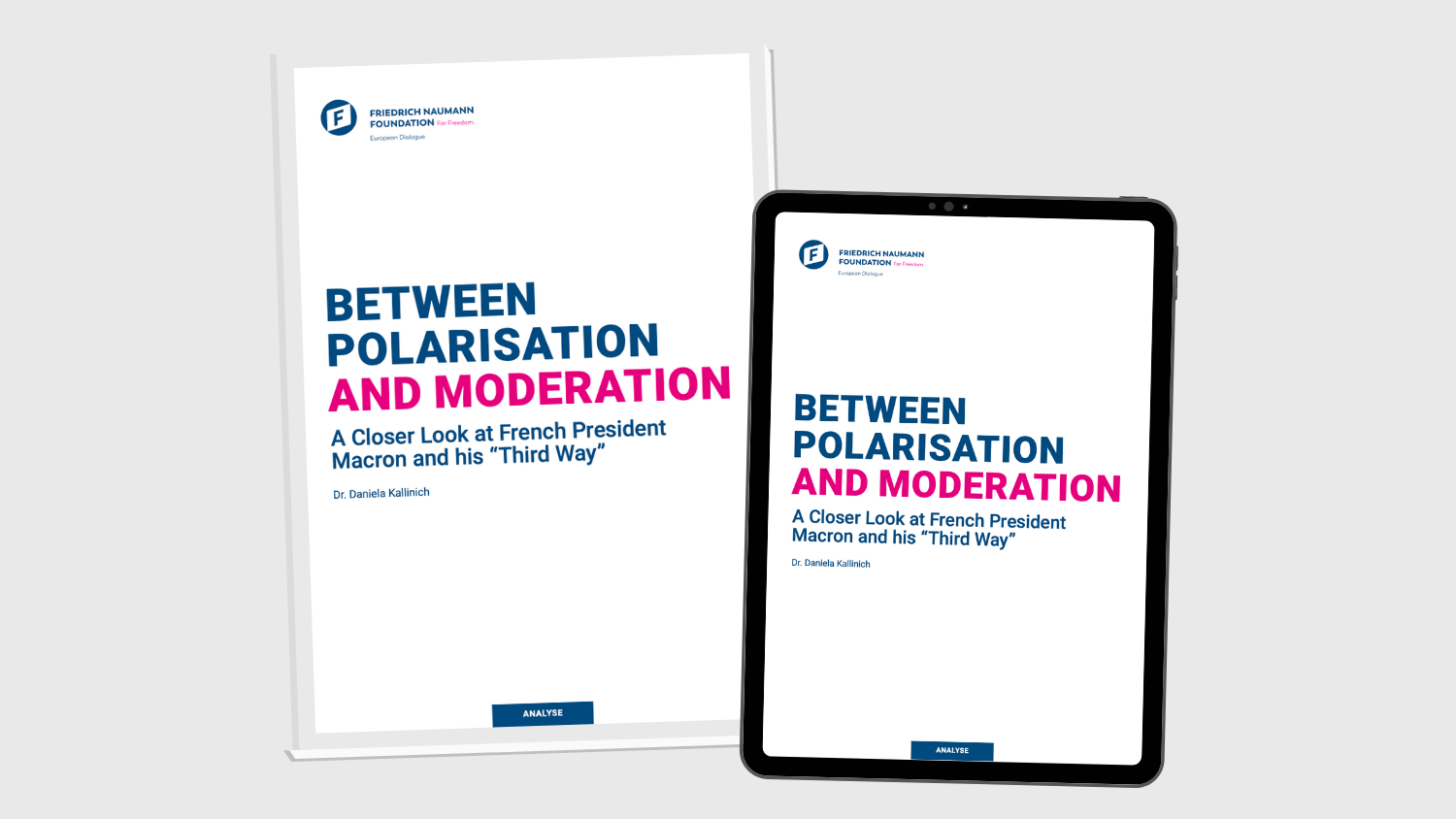France
New study: Between Polarisation and Modernisation

After almost three years, we have become accustomed to the dynamic President Emmanuel Macron in our neighbouring country France. With varying degrees of emotion, we have watched political impulses he has initiated, contentious reforms and resulting social reactions such as the protests of the Yellow Vests movement, observed with fascination his political boldness and perhaps also some clumsiness.
However, many are still faced today with the question of how Macron, his party La République en Marche and his policies are actually to be classified. The media in Germany often describe him as liberal and agree that he is a friend of Europe and a reformer. But how is his political profile, are his reforms really to be located? Thus, the study “particularly aims to clarify the French understanding of the term “liberalism”, which is often misunderstood by Germans”, says our European Affairs Manager and Head of France Activities within the European Dialogue Programme, Jeanette Süß.
In France, Macron is often also referred to as a centrist - a political characteristic that for many decades has rather stood for unsuccessfulness, fickleness and a lack of profile in terms of content. But what is it really about in terms of content? Who are the traditional representatives of this political tradition and is a president who governs with members of the left, the right and the centre really a centrist?
Political scientist Dr Daniela Kallinich answers these and many other questions in our new study "Between Polarisation and Moderation - A Closer Look at French President.